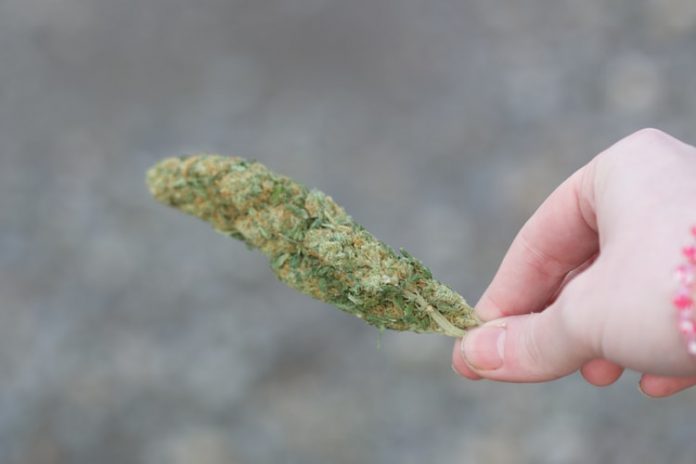U.S, February 25, 2020 (ANALYTICAL CANNABIS) At some point in their adult education, every US student is faced with the same agonizing question: what should I major in? Luckily, for the cannabis aficionados studying at Colorado State University-Pueblo, that choice just became a lot easier.
From this fall, students at the southern Colorado university can enroll at the US’s first bachelor of science degree in cannabis biology and chemistry. With a dual emphasis on the biology and chemistry of the once prohibited plant, the degree will hopefully act as a pedagogical springboard for graduates to jump straight into the growing industry.
So, what can budding students expect to learn?
Cannabis in campus
“The first two years of the programme are essentially foundation courses in chemistry and biology, physics and math,” says David Lehmpuhl, the school’s dean of the college of science and mathematics.
“Then students will have to select either a natural products or an analytical emphasis,” he adds. “The analytical emphasis, of course, has a lot more chemistry involved in it, including a course on extraction of natural products. And then students who are more interested in the neurobiology or the genetics of the plant can focus on the natural product side.”
Among the many proposed modules, the degree will teach students cannabis physiology and growth, general chemistry, organic chemistry, environmental toxicology, and medicinal plant biochemistry. But given the ever-fluctuating landscape of cannabis regulations in the US, Lehmpuhl is keen students keep abreast of pot policy, too.
“The degree actually has a lot of elective credits that we’ve left open on purpose,” he tells Analytical Cannabis. “If students want to focus on the policy side of things, they can take coursework in political science, or they can minor in business while they get this major.”
“We wanted to make this degree as flexible as possible,” he continues, “but still give them the expertise in the cannabis to be employable in the cannabis industry.”
But, of course, the remits of the degree only go as far as US law. So any student hoping to get hands-on with stronger strains may be disappointed.
“We still have to be federally compliant,” Lehmpuhl clarifies. “We don’t want students to jeopardize their financial aid and we don’t want to jeopardize any national grants that we’ve got at the university.”
While your average Coloradan could be forgiven for thinking cannabis was fully legal (the state netted $1.75 billion last year in cannabis sales), any plant material with more than 0.3 percent THC by weight is still considered federally illegal in the US. So, to stay lawful, the only plant material students will be getting to grips with will be federally legal, non-intoxicating hemp.
“We have a Colorado Department of Agricultural licence to work with industrial hemp, and we’ve got that growing in our greenhouse,” Lehmpuhl says. “So that’ll be what students are using in the laboratory portion of their curriculum. We won’t have any high THC material here.”
A growing field
While Colorado State University-Pueblo’s cannabis degree may sound inviting to any student eyeing up a cannabis career, is it really necessary?
After all, the Colorado-state degree wasn’t a requirement for the thousands of scientists already employed in the cannabis industry, most of whom would have been trained through standard biology and chemistry honors. And neither is the program the first in the US to offer cannabis chemistry education; Michigan’s Lake Superior State University welcomed 41 students to its new analytical cannabis chemistry degree program last fall.
But as marijuana’s social stigma falls away, professional interest in the industry is bound to increase. Current estimates put the number of jobs in the US sector at 243,700 – nearly double the number available in 2017. In such a rapidly maturing market, graduates may need to prove their cannabis-keenness to stand out from the crowd. Hence why, even before the application opening date, Lehmpuhl and his colleagues are feeling pretty confident about filling up their first class.
“The response has been pretty phenomenal and exciting,” Lehmpuhl says. “I have done nothing for the last two weeks but answer inquiries.”
Not all of these inquiries have been entirely relevant to the degree, though, which is why Lehmpuhl is keen to emphasize the course’s scientific merits, and not its recreational roots.
“It’s not a party degree. It’s not something where students are going to be working with marijuana at all,” he clarifies. “So I hope that we get the students here that are interested in the science… and make sure the right message is getting out. It’s been taking a lot of time. But there’s been a really strong response.”
Colorado State University-Pueblo’s cannabis-focused bachelor’s degree will begin its first year this fall.







